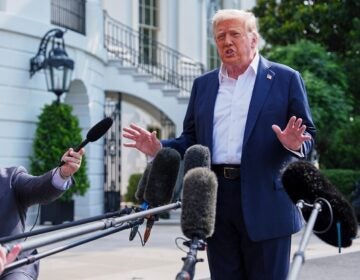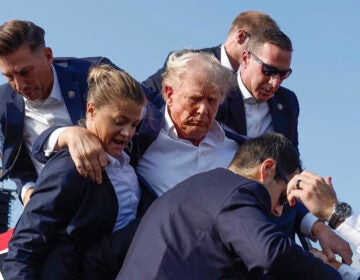Temple law professor David Post on the new internet
My colleague David Post is this year’s recipient of the Friel-Scanlan prize for the best scholarly publication by a member of the Temple Law School faculty. In acknowledging the prize for his book, In Search of Jefferson’s Moose: Notes on the State of Cyberspace, David Post delivered brief but insightful remarks on our evolving understanding of the importance of the new internet. I can only attempt to do them justice here, with apologies for falling short.
He began by noting that only in the last few weeks has the question been decisively answered, how important is the internet really? Is its significance mainly that it allows us to do faster what we have always been doing? Is it just another step up from, say, CB radio?
The recent political upheavals in Tunisia, Egypt, and throughout the Arab world clearly tell us otherwise, says Professor Post. It’s not just that Facebook, YouTube, and Twitter were helpful tools for the revolutions there. Post observes that the social media websites were essential, “but for” prerequisites for the revolutions in north Africa. Without them, Hosni Mubarek is still president of Egypt, and the social structure of the Arab world remains as it always has been.
The social media websites of the new internet are what allowed those alienated from dysfunctional societies to see that they are not alone, that there are many who think and feel exactly as they do. That produced the coordinated social upheaval which continues to shake-up the Arab world, and which threatens other societies where people for the first time are finding their common voice.
The importance of the new internet is demonstrated both by president Mubarek’s attempt to shut it off to halt the communications of citizens with each other, and also by his decision to turn it back on, in recognition that no economy more advanced than North Korea’s can now function without it.
What is amazing is not the efforts made in some countries to limit and regulate citizen access to the internet. The truly amazing thing is that most of the countries of the world now allow their citizens to freely use the internet to communicate with each other as they choose. In comparison, at the time of Professor Post’s protagonist Thomas Jefferson, the United States was the only country in the world to embrace and protect the free exchange of ideas among its citizens.
Professor Post’s final point is that the new internet’s future potential requires continual vigilance and protection. The social media websites were made possible only by provisions of the Digital Millennium Copyright Act signed into law by President Clinton in 1998. Those provisions protect internet service providers from liability for copyright infringement by their users.
Without this legal protection, the capital could not have been raised from investors to fund Facebook, YouTube, Twitter, or other social media platforms. And without the social media, we live in a different world than the one we live in today. It is more than a coincidence, David Post suggests, that the earliest and most successful social media websites originated in and continue to operate from the United States.
Digital freedom on the internet is not without challenges, including those of copyright owners who would like to subject internet traffic to inspection to discover contraband packets of information. That impulse to spy on and regulate the internet re-opens the door to government as Big Brother.
David Post ends his homily on the new internet with an exhortation to protect and defend it, an undertaking for which lawyers are especially and professionally equipped.
WHYY is your source for fact-based, in-depth journalism and information. As a nonprofit organization, we rely on financial support from readers like you. Please give today.




